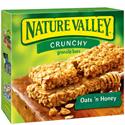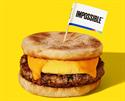Companies
Water Is The Key Component Of A Healthy Life, Survey Finds
 Water is the most important part of a healthy life, according to a study commissioned by Nestlé Waters NA. Twenty-seven percent of consumers and 32 percent of experts rank water higher than sleep and healthy foods. The study surveyed a total of 6,142 American consumers and experts on water-related topics. Water conservation efforts were found to be a key priority for Americans, with more than half of consumers (55 percent) and experts (60 percent) saying they think about their water usage on a daily basis. But an average of 42 percent admit that they do not conserve water, but are willing to do so. [Image Credit: © Nestlé Waters North America Inc.]
Water is the most important part of a healthy life, according to a study commissioned by Nestlé Waters NA. Twenty-seven percent of consumers and 32 percent of experts rank water higher than sleep and healthy foods. The study surveyed a total of 6,142 American consumers and experts on water-related topics. Water conservation efforts were found to be a key priority for Americans, with more than half of consumers (55 percent) and experts (60 percent) saying they think about their water usage on a daily basis. But an average of 42 percent admit that they do not conserve water, but are willing to do so. [Image Credit: © Nestlé Waters North America Inc.]
Court Says Desire For Truthful Food Labeling Does Not Pre-empt Federal Law
 A U.S. District Court in New York on August 14 rejected spice maker McCormick & Co.’s argument that the plaintiff's claims in a lawsuit – that McCormick’s products were falsely labeled “all natural” – were expressly pre-empted by the National Bioengineered Food Disclosure Standard. The court said the claim is that McCormick's "natural" labeling should be truthful and not deceptive. The plaintiff is not seeking to establish a GMO label requirement, so the claim is not pre-empted by the federal law. McCormick and other food and beverage companies (and potential plaintiffs), meanwhile, await FDA guidance on how the term "natural" can be used on food labels. [Image Credit: © monicore]
A U.S. District Court in New York on August 14 rejected spice maker McCormick & Co.’s argument that the plaintiff's claims in a lawsuit – that McCormick’s products were falsely labeled “all natural” – were expressly pre-empted by the National Bioengineered Food Disclosure Standard. The court said the claim is that McCormick's "natural" labeling should be truthful and not deceptive. The plaintiff is not seeking to establish a GMO label requirement, so the claim is not pre-empted by the federal law. McCormick and other food and beverage companies (and potential plaintiffs), meanwhile, await FDA guidance on how the term "natural" can be used on food labels. [Image Credit: © monicore]
Omnichannel Ad Campaign To Boost Natural And Organic Products
 With sales of natural and organic products in the U.S. climbing 6.5 percent to $207 billion in 2017 – sales are expected to top $ 250 billion in 2020 – Mambo Sprouts and SKUlocal have partnered to produce and distribute an omnichannel education and savings program focused entirely on natural and organic products for health-conscious consumers. Direct Connect is targeting two million shoppers via direct mail, email and a network of social influencers. The direct mail portion will target homes within five miles of Whole Foods stores in California and in select areas in the Mid-Atlantic, Midwest and Rocky Mountain regions. N.J.-based Mambo Sprouts is a pioneer in delivering natural and organic consumer and shopper solutions.[Image Credit: © MamboSprouts.com]
With sales of natural and organic products in the U.S. climbing 6.5 percent to $207 billion in 2017 – sales are expected to top $ 250 billion in 2020 – Mambo Sprouts and SKUlocal have partnered to produce and distribute an omnichannel education and savings program focused entirely on natural and organic products for health-conscious consumers. Direct Connect is targeting two million shoppers via direct mail, email and a network of social influencers. The direct mail portion will target homes within five miles of Whole Foods stores in California and in select areas in the Mid-Atlantic, Midwest and Rocky Mountain regions. N.J.-based Mambo Sprouts is a pioneer in delivering natural and organic consumer and shopper solutions.[Image Credit: © MamboSprouts.com]
General Mills Drops “Natural” Claim For Granola Bars

General Mills will no longer claim on its Nature Valley granola bars that they are 100 percent natural, according to a news report. The company recently settled a 2016 lawsuit that said that oats used in the bars contained the herbicide glyphostate, the active ingredient in the Monsanto product Roundup that has been connected to cancer. Tests by an independent lab found .45 parts per million glyphosate in the Nature Valley products. The company reportedly settled instead of going through "the cost and distraction of litigation" and instead will focus on making sure products have 100 percent whole grain oats.[Image Credit: © General Mills]
Perdue To Begin Offering Lower-Priced Organic Chicken Products
 Maryland-based Perdue Farms announced its Simply Smart Organics chicken products – including frozen and refrigerated whole grain, gluten-free, and lightly breaded nuggets, strips and tenders – will be available next month at about half the cost of other organic brands. The company says the new organic products will be more affordable relative to other similar products, without compromising organic standards, convenience or taste. The line of chicken products can already be found in stores, but beginning in October they’ll carry the USDA certified organic seal. U.S. sales of organic broiler chickens were up 78 percent in 2016 from the previous year, totalling $750 million, according to the USDA.[Image Credit: © Perdue and its affiliates or subsidiaries]
Maryland-based Perdue Farms announced its Simply Smart Organics chicken products – including frozen and refrigerated whole grain, gluten-free, and lightly breaded nuggets, strips and tenders – will be available next month at about half the cost of other organic brands. The company says the new organic products will be more affordable relative to other similar products, without compromising organic standards, convenience or taste. The line of chicken products can already be found in stores, but beginning in October they’ll carry the USDA certified organic seal. U.S. sales of organic broiler chickens were up 78 percent in 2016 from the previous year, totalling $750 million, according to the USDA.[Image Credit: © Perdue and its affiliates or subsidiaries]
Missouri Clarifies Restrictions On Labeling Plant-Based Or Lab-Grown Meats
 Missouri lawmakers last spring passed a law stating that plant-based and lab-grown meat products cannot be labeled as meat. But on August 30 the state agriculture department issued a reprieve for companies marketing such products, saying they would have until January 1 to comply with the labeling requirements under the law, which took effect on August 28. The law states that products labeled as meat must be derived from an actual cow, chicken, turkey or some other animal with two or four feet. The agriculture department’s advisory said companies would not be prosecuted if labels prominently use words like "plant-based," "veggie," "lab-grown," or "lab-created" near the product name, or if it states the product is "made from plants" or "grown in a lab."[Image Credit: © Impossible Foods Inc.]
Missouri lawmakers last spring passed a law stating that plant-based and lab-grown meat products cannot be labeled as meat. But on August 30 the state agriculture department issued a reprieve for companies marketing such products, saying they would have until January 1 to comply with the labeling requirements under the law, which took effect on August 28. The law states that products labeled as meat must be derived from an actual cow, chicken, turkey or some other animal with two or four feet. The agriculture department’s advisory said companies would not be prosecuted if labels prominently use words like "plant-based," "veggie," "lab-grown," or "lab-created" near the product name, or if it states the product is "made from plants" or "grown in a lab."[Image Credit: © Impossible Foods Inc.]
How Companies Are Working To Meet Demand For “Free From” Foods
 As American consumers increasingly seek out foods that are “free from” gluten, antibiotics, pesticides, and genetic modification – sales of which are poised to grow 15 percent by 2022 – food manufacturers are taking extraordinary measures to ensure they are meeting that demand, changing the way they procure, process, and package food. General Mills Inc., for example, which was forced recall gluten-free Cheerios – oats do not naturally contain gluten – because wheat flour got into a facility in California. The company built a special eight-story sorting plant to make sure gluten particles from neighboring fields did not end up in their oat-based cereals.[Image Credit: © General Mills Inc]
As American consumers increasingly seek out foods that are “free from” gluten, antibiotics, pesticides, and genetic modification – sales of which are poised to grow 15 percent by 2022 – food manufacturers are taking extraordinary measures to ensure they are meeting that demand, changing the way they procure, process, and package food. General Mills Inc., for example, which was forced recall gluten-free Cheerios – oats do not naturally contain gluten – because wheat flour got into a facility in California. The company built a special eight-story sorting plant to make sure gluten particles from neighboring fields did not end up in their oat-based cereals.[Image Credit: © General Mills Inc]
Copyright 2026 Business360, Inc.

